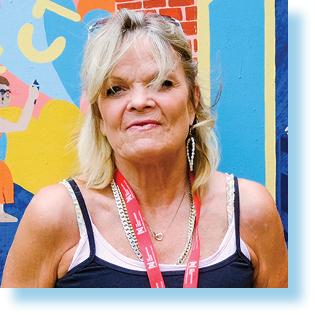 Outreach workers like Debra encourage harm reduction practices among shelter and encampment residents
Outreach workers like Debra encourage harm reduction practices among shelter and encampment residents
Ten deaths a week. That’s the number of opioid overdose deaths in Toronto in 2021, a staggering 274% increase since 2015. Tackling the opioid crisis starts with harm reduction.
Employing a supportive, non-judgemental approach, harm reduction seeks to reduce the negative consequences of substance use, and improve the health and safety of people who use. To encourage harm reduction practices, peers with lived experience like Debra went into shelters and encampments looking to first build a sense of trust.
“I was using substances and felt I would never climb out of the dark hole I found myself in. After getting to know staff at The Neighbourhood Group, they suggested I use my own lived experience to reach out to other people.
“The goal was to build a rapport before I could even get to safer use. We started with simple things like snacks because people were hungry. We did things like movie nights and arts and crafts therapy. These activities helped people open up and I could refer them to services they need like PAID (our identification program), or the services at our Corner Drop-in and Kensington Market Overdose Prevention Site. We give them love so they can love themselves.
“My role as an Outreach Worker has changed my life too. When I hear someone call me and say “Thank you for saving my life”, it makes my day. I now embrace my old life in a much more positive way as it’s shaped me into the woman I am today.”